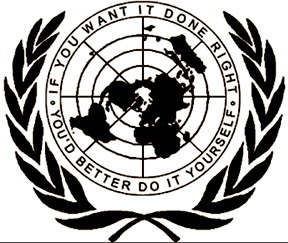UN elect new Council members
The UN General Assembly elect new members to the Human Rights Council
on Thursday under pressure from several organizations to keep off
alleged rights abusers such as Belarus and Egypt.
 At least 16 countries are vying for 14 seats which are allocated on a
regional geographical basis. At least 16 countries are vying for 14 seats which are allocated on a
regional geographical basis.
Each candidate is evaluated based on criteria such as political
rights and political freedoms, freedom of the press and human rights
promotion at the UN.
Several human rights groups, including Human Rights Watch, have
appealed to the 192-member Assembly to reject Belarus' bid for a seat on
the world body's top rights panel, citing its "appalling rights record
and consistent failure to cooperate with the UN."
Similar concerns have been echoed by a range of regional and
international organizations, including the Organization for Security and
Cooperation in Europe, the Council of Europe, and the European
Commission.
HRW and other groups hailed Bosnia-Hercegovina's last minute entry
into a three-way race along with Belarus and Slovenia for the two seats
up for grabs in the East European Group to replace the Czech Republic
and Poland.
"Given its track record of human rights abuse and its refusal to
cooperate with the UN, voting to put Belarus on the UN's premier human
rights body defies belief," said Peggy Hicks, global advocacy director
at Human Rights Watch.
Hicks also said Egypt did not deserve to be admitted to the
Geneva-based council for the same reasons.
Two non-governmental organizations groups that champion human rights
worldwide, UN Watch and Freedom House, have singled Belarus, Egypt,
Angola and Qatar as "authoritarian regimes with negative UN voting
records" that are "not qualified to be members (of the council) under
the applicable standards."
To be elected to the Human Rights Council, a member must be approved
individually and directly by a majority (at least 97) of the members of
the General Assembly, in a secret ballot.
Membership is limited to two consecutive terms, and any Council
member may be suspended by a two-thirds vote of the Assembly.
The Council's 47 seats are distributed among the UN's five regional
groups as follows: 13 for Africa, 13 for Asia, six for Eastern Europe,
eight for Latin America and the Caribbean, and seven for the Western
European and others group.
Other candidates are in the African group (Madagascar and South
Africa), in the Western group (Denmark, Italy and The Netherlands), in
the Asian group (India, Indonesia, Philippines and Qatar), and in the
American and Caribbean group (Bolivia and Nicaragua).
The panel was created last year under an assembly resolution
specifying that "members elected to the Council shall uphold the highest
standards in the promotion and protection of human rights" and will be
subject to periodic review.
Elevated to the status of a subsidiary body of the General Assembly,
the Human Rights Council replaced the discredited the 53-member Human
Rights Commission, which was an independent body, as part of UN reforms.
AFP
|
